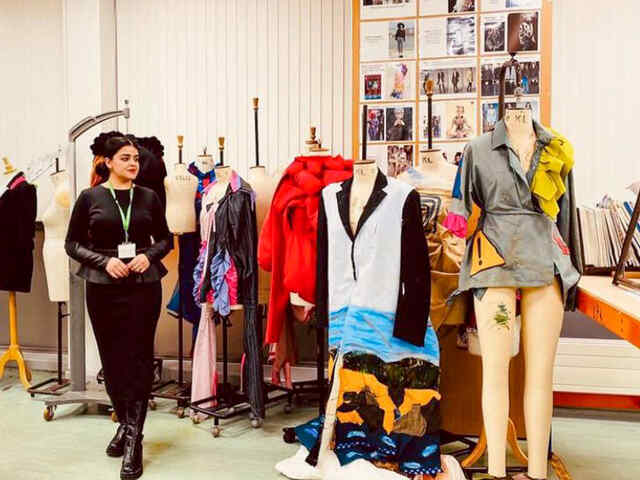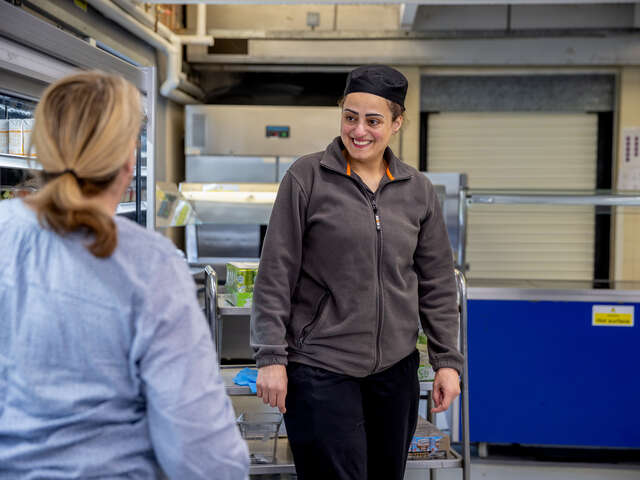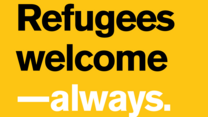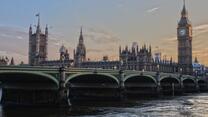With more misinformation being shared than ever, it's crucial to separate fact from fiction when discussing refugees and asylum seekers in the UK.
We often see headlines claiming people with refugee status are ‘flooding’ the country and ‘illegally’ entering the UK, while social media accounts continue to spread misinformation around refugees. But how much of this is actually true?
We're tackling some of the biggest myths, breaking down the facts, explaining the statistics and sharing real life stories of people seeking protection in the UK.
Myth: "We can't let everyone in just because they want to come here."
Reality: Refugees don't migrate by choice. They flee persecution and life-threatening situations, seeking safety and protection. Most refugees don't want to come to the UK, with the majority staying in neighbouring countries.
Read more: Refugee facts and statistics
Myth: "The UK is already doing more than its fair share."
Reality: The UK is home to just 1% of refugees who have been displaced across the world. And despite what some media might say, the UK isn’t 'overrun' with refugees and at the end of 2023, they make up around 0.6% of the UK population. Based on the number of asylum applications per head of population, the UK currently ranks 20th highest in Europe.
Myth: "The UK is being ‘invaded’ by asylum seekers."
Reality: Language matters. Terms like 'invasion' dehumanise people fleeing impossible circumstances. Refugees are more than just numbers, they’re people with dreams, hopes and ambitions who are fleeing impossible circumstances.
The numbers of people seeking asylum in the UK are manageable and we mustn’t buy into the false narratives that the UK is under threat from an ‘invasion’ of people. In the year ending 2023, asylum seekers accounted for 7% of immigration. In terms of the number of asylum applications per head of population, the UK ranks 20th highest in Europe.
Myth: "Immigration is largely small boat arrivals."
Reality: In the year ending June 2023, 44,460 people arrived by small boats, which is only 3.7% of the total 1.2 million people who immigrated to the UK during that time.
The vast majority of the people who make small boat crossings are refugees, fleeing conflict and persecution. More than 90% of the people who have arrived in the UK by boat since 2018 claimed asylum, and three quarters have had their asylum claims granted.
Myth: "Refugees are a burden on our economy."
Reality: Refugees contribute significantly to their host communities. They start businesses, pay taxes, and enrich local economies. How we treat refugees reflects our values as a society. A report from the Commission on the Integration of Refugees found that the UK economy could receive net benefits of £1.2 billion in five years if employment support and English-language for refugees were quickly implemented.
The stories of people we have worked with in the UK demonstrate their resilience and desire to contribute. Saghar is an Afghan journalist who, despite initial language barriers, is now pursuing her dream of becoming a fashion designer in Liverpool.

Meanwhile, Masihullah currently works as an interpreter helping other Afghan families settle in the UK, drawing from his own experiences. Syrian refugee Chadia volunteered as a cook during the pandemic and now works as a dinner lady in a Brighton school.
Read more of our refugee stories here.

Myth: "People crossing the Channel aren't real refugees."
Reality: In 2022, two-thirds of the people who crossed the Channel were granted asylum. Of these successful applicants, half came from just five countries: Afghanistan, Iran, Eritrea, Sudan, and Syria.
All of these countries have experienced recent violent conflict or innter turmoil. For those who initially receive negative decisions, many of these are overturned when their case is reexamined on appeal.
Myth: "Asylum seekers are illegal immigrants."
Reality: No human being is illegal and seeking asylum is a human right - one you would also have access to if your country ever came under attack. Refugees should be supported based on their need for protection, not how they arrived. Under the Refugee Convention, it is not unlawful to travel to the UK irregularly in order to seek protection.
Myth: "Deterrence measures will stop people smugglers profiting off vulnerable people."
Reality: There is no evidence that deterrence methods, such as banning people from the country and deporting them to other countries, will stop smugglers. Many people are already fleeing conflict and persecution. If the UK government expanded safe routes, fewer refugees would need to turn to smugglers.
Myth: "There are plenty of safe routes to the UK."
Reality: There are very few safe routes for refugees to travel to the UK. The few existing pathways are extremely restricted by nationality and number.
People seeking asylum in the UK must be physically in the country to make a claim. There is no specific asylum visa to allow someone to enter regularly to access this legal right.
Read more about safe routes here.
Myth: "Refugees should stay in the first safe country they reach."
Reality: Most refugees do stay in the first country they arrive in, with 70% living in neighbouring countries. People who continue to the UK often have family ties, language connections, or professional links to the country.
Importantly, there's no legal requirement for refugees to claim asylum in the first country they reach. The 1951 Refugee Convention, of which the UK is a signatory, states that people can seek asylum in any country they choose. In a poll by the IRC last year, 67% of the UK public also said they would want to be able to choose which country they sought asylum in if they had to flee.
Read more about why refugees may not stay in the first safe country they reach here.
Myth: "Asylum seekers don’t want to work."
Reality: We know that 94% of asylum seekers want to find employment but the current rules in the UK mean that most people seeking asylum are not entitled to work until their refugee status is granted. According to the most recent data, asylum applications took an average of around 21 months to receive an initial decision in the UK in 2022. This means they cannot provide for themselves and their families, trapping them in poverty. If the ban on employment for asylum seekers were lifted by the government, it is estimated that the UK economy could gain £333 million per year.
When people are granted refugee status in the UK, they are able to work but often face significant barriers. These can include language difficulties, lack of UK work experience, and unfamiliarity with job application processes. The IRC provides crucial integration support for refugees, offering language classes, job readiness training and cultural orientation sessions to support people to successfully enter the UK job market.
Read more about how the IRC is supporting refugees in the UK here.
What is the International Rescue Committee?
The International Rescue Committee (IRC) helps people affected by humanitarian crises to survive, recover and rebuild their lives. We deliver lasting impact by providing health care, helping children learn, and empowering individuals and communities to become self-reliant, always with a focus on the unique needs of women and girls.



